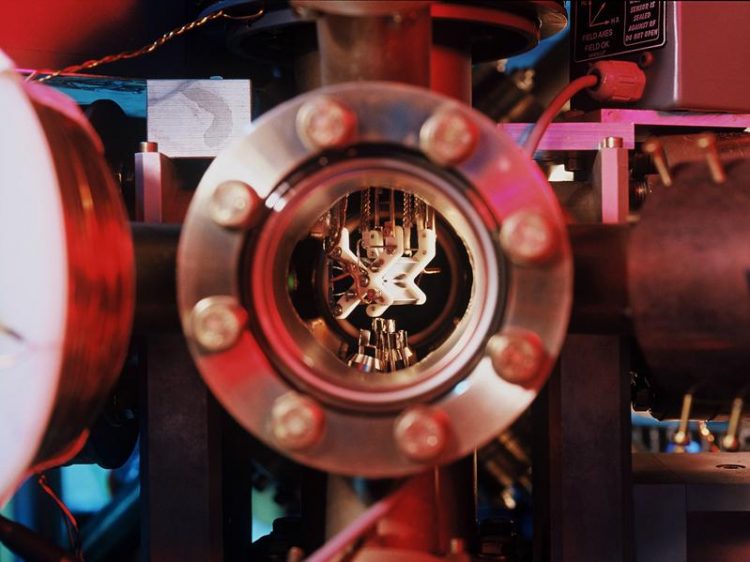Quantum computers in Innsbruck support Qiskit as quantum software tool

One of the ion-trap quantum computers, located at the University of Innsbruck, accessible using Qiskit C. Lackner
Quantum computers may find applications in chemistry, logistics, finance and several other fields. There is an ongoing race between various technologies to realize a quantum computer – including trapped ions, superconducting circuits, single photons and many more.
In contrast to the variety in technical approaches, there are only very few quantum programming languages, with Qiskit being the most widely used quantum software development kit.
Qiskit includes a large library of algorithms, routines and applications. To date, Qiskit mainly focused on the superconducting platform – which is about to change.
Innsbruck und IBM
Following up on an international Qiskit camp in Switzerland, students of the University of Innsbruck and employees from AQT have been working with IBM on extending the capabilities of Qiskit.
Quantum developers can now, at the push of a button, create and investigate entanglement, develop new quantum algorithms, and implement novel quantum applications on devices of IBM, AQT and the University of Innsbruck.
„When we launched Qiskit in March 2017 our goal was ambitious, yet simple — create an open software platform for building quantum programs, mapping them to different backend devices, and running them on simulators and various types of real hardware”, said Dr. Walter Riess, Manager, IBM Q Europe, IBM Research.
„This open strategy has now enabled us to extend our community beyond our our own superconducting qubit devices to now include ion traps with AQT, who developed and executed the Qiskit interface for their device in only three days.” Dr. Philipp Schindler at the University of Innsbruck explains that „several of our research partners are already using Qiskit.
Adding the Innsbruck quantum computers as a backend in Qiskit enables our partners to directly implement their ideas on our devices. This will significantly boost our scientific research.” Besides fundamental researchers also application-focused developers benefit from these changes.
The quantum computer startup AQT in Innsbruck has a growing number of customers with various interests. Dr. Thomas Monz, CEO at AQT, “will happily inform our clients that we now support Qiskit as a programming language. Qiskit will facilitate the development of novel applications for us and our partners.”
Thomas Monz and Philipp Schindler are convinced that supporting Qiskit will help Innsbruck to extend its number of collaborators and clients.
Dr. Philipp Schindler
Department of Experimental Physics
University of Innsbruck
+43 512 507 52466
philipp.schindler@uibk.ac.at
https://www.uibk.ac.at/
Dr. Thomas Monz
Alpine Quantum Technologies (AQT)
+43 512 507 52452
thomas.monz@aqt.eu
https://www.aqt.eu/
Barbara Jax
IBM Austria
+43 1 21145 3686
barbara.jax@at.ibm.com
https://www.ibm.com/
Media Contact
All latest news from the category: Information Technology
Here you can find a summary of innovations in the fields of information and data processing and up-to-date developments on IT equipment and hardware.
This area covers topics such as IT services, IT architectures, IT management and telecommunications.
Newest articles

“Nanostitches” enable lighter and tougher composite materials
In research that may lead to next-generation airplanes and spacecraft, MIT engineers used carbon nanotubes to prevent cracking in multilayered composites. To save on fuel and reduce aircraft emissions, engineers…

Trash to treasure
Researchers turn metal waste into catalyst for hydrogen. Scientists have found a way to transform metal waste into a highly efficient catalyst to make hydrogen from water, a discovery that…

Real-time detection of infectious disease viruses
… by searching for molecular fingerprinting. A research team consisting of Professor Kyoung-Duck Park and Taeyoung Moon and Huitae Joo, PhD candidates, from the Department of Physics at Pohang University…





















